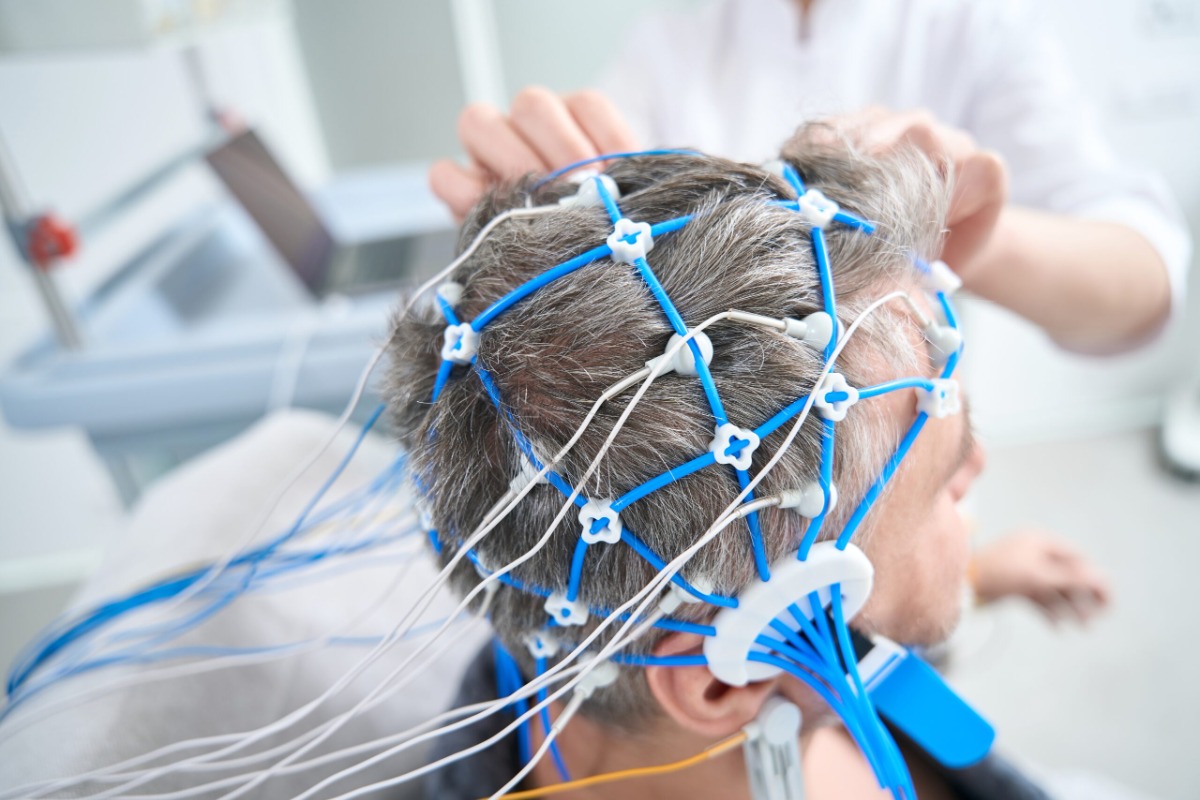Neurophysiopathology is a branch of neurology that deals with the study of the function of the nervous system, both central (brain and spinal cord) and peripheral (nerves), and muscles, analyzing how these structures interact and how they function under normal and pathological conditions.
In detail, neurophysiopathology:
This includes studying the electrical signals generated by neurons in the brain, spinal cord and peripheral nerves.
Examinations such as electroencephalography (EEG), electromyography (EMG), evoked potentials, and polygraphy are used to assess nervous system function.
Neurophysiopathology provides crucial information for the diagnosis and treatment of neurological disorders such as degenerative diseases (e.g., Alzheimer's, Parkinson's), epilepsy, nerve injury, sleep disorders, and many others.
The neurophysiopathology technician directly applies diagnostic methods, collaborating with the medical specialist.
Neurophysiopathology contributes to the understanding of the mechanisms underlying the functioning of the nervous system, paving the way for new therapies and prevention strategies.
In summary, neurophysiopathology is a fundamental tool for studying and understanding the nervous system, contributing to the diagnosis and treatment of numerous diseases.
He or she is a health professional who works in the field of diagnosis of diseases of the nervous system, using specific techniques and instruments to study the electrical activity of the brain, nerves, and muscles. This professional performs examinations such as electroencephalography (EEG), electromyography (EMG), and evoked potentials, as prescribed by a physician, and writes reports under the technical aspect.
What does a neurophysiopathology technician do?
Neurophysiopathology techniques are diagnostic methods that study the electrical activity of the nervous system and muscles to detect and characterize neurological and muscular pathologies. These techniques include electroencephalography (EEG), electroneurography (ENG), electromyography (EMG), and evoked potentials, among others.
Here are the main techniques used:
It records the electrical activity of the brain through electrodes applied to the scalp. It is used to diagnose epilepsy, sleep disorders, and other neurological disorders.
Measures peripheral nerve conduction velocity, helping to identify nerve damage or disease.
Assesses the electrical activity of muscles, both at rest and during contraction, to detect muscle or nerve disease.
They stimulate sensory nerves or nerve pathways and record the response of the nervous system, providing information on the function of specific nerve pathways.
It monitors various parameters during sleep, such as brain activity, breathing, eye and muscle movements, to diagnose sleep disorders.
It uses ultrasound to study blood vessels in the brain and neck, helping to identify blockages or other abnormalities.
They assess the function of the autonomic nervous system, which controls involuntary bodily functions.
Neurophysiopathological examination and evaluation is also necessary for further diagnostic investigation in other medical and surgical disciplines such as:
Andrology: EMG and evoked potentials with perineal plane and pudendal nerve study.
Cardiology: cardiovascular testing of SNV, EEG (differential diagnosis syncope vs epilepsy), Cardio-respiratory polysomnography, Tilt test (work in progress).
Hand surgery: upper limb EMG (carpal tunnel syndrome, entrapment syndromes).
Orthognathic surgery: cardio-respiratory polysomnography (OSAS obstructive sleep apnea syndrome)
Facial surgery and treatments: EMG of the facial district (study of the facial nerve and other cranial nerves).
Ultrasound: diagnostic completion of echo-nerve with EMG, Doppler supra-aortic trunks (work in progress).
Diabetology: 4 limb EMG (diabetic polyneuropathy and therapy monitoring), SNV cardiovascular testing for diagnosis of diabetic neuropathy.
Physiatry and FKT: EMG and evoked potentials as injury balance/functional recovery.
GYN: EMG and pelvic floor evoked potentials. INTERNAL MEDICINE: EMG four limbs for suspected SNP pathology (e.g., polyneuopathy), respiratory pathology (Cardiorespiratory Polysomnography), EEG for suspected CNS pathology.
Neurosurgery: EMG and evoked potentials for SNP pathologies and spine pathologies, EEG for CNS pathologies. NEUROPSYCHOLOGY: EEG (dementia, cognitive impairment, ADHD etc).
Ophthalmology: Visual evoked potentials (VEPs) and Electroretinogram (ERG) from flash.
Oncology: EMG for diagnosis/monitoring of paraneoplastic polyneuropathy, EEG for oncological diseases involving the CNS.
Orthopedics: EMG for muscle/nerve trauma as injury/therapeutic balance, carpal tunnel syndrome.
Otolaryngology: Acoustic evoked potentials (BAEP) and EMG for facial nerve study.
Psychology: EEG to rule out central neurological disorders, Cardio Respiratory Polysomnography (sleep disorders).
Rheumatology: EMG for study of rheumatology-related polyneuropathies.
Pain therapy: EMG for musculoskeletal disorders, peripheral neuropathies, pelvic pain, and fibromyalgia that can be investigated with electromyography.
Urology: EMG with study of the perineal plane, erectile dysfunction, and pudendal nerve.
Neurophysiopathology techniques are critical for the diagnosis and monitoring of many neurological and muscular conditions, providing valuable information for treatment planning.
talk to an operator
WRITE US ON WHATSAPP
for information and reservations
WRITE
For information and phone reservations you can call
035 03 91 364 Monday through Friday from 8:00 a.m. to 6:00 p.m.
Phone: 035 03 91 364
E-Mail: segreteria@life-clinic.it
For information and phone reservations you can call
035 03 91 364 Monday through Friday from 8:00 a.m. to 6:00 p.m.
Specialist examinations will be conducted by:

Where we are
C/O Life Source
Via Briantea, 5 24127 Bergamo (BG)
We are located within the Life Source Pole a unique facility in quality, privacy and hospitality, easy to reach from all directions.

Agreements with Insurance and Funds: